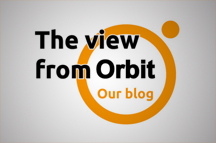 The issue of tax is set to form the key battleground for the political parties at the forthcoming Scottish Parliamentary elections on 5th May.
The issue of tax is set to form the key battleground for the political parties at the forthcoming Scottish Parliamentary elections on 5th May.
In April 2017, the Scottish Parliament will receive a package of powers.
These include:
- power to set the rates and bands of income tax on non-savings and non-dividend income;
- half the share of VAT receipts in Scotland being assigned to the Scottish government’s budget;
- and power over Air Passenger Duty and Aggregates LevySo, for the first time, significant powers will form a key plank of party manifestoes, and voters will face a spread of ideas and choices over the best balance of taxation and spending.
SNP
The SNP has said it will not adopt Mr Osborne’s announcement in the Budget to take anyone earning less than £45,000 out of the 40p tax rate. However, it does not intend to increase the 45p rate currently levied on those earning £150,000 or more a year.
The argument for not raising the top rate of income tax straight away is, according to Nicola Sturgeon, that this would see Scotland lose up to £30m a year due to income tax avoidance. She has however not ruled this out for future years and has asked the Council of Economic Advisers to see whether that risk can be mitigated.
George Osborne aims to put up the starting threshold for basic rate of tax from £11,000 to £12,500 by 2020. Nicola Sturgeon says she wants to put it up to £12,750 by the following year.
Scottish Labour
Scottish Labour has put on record that it does not want to see the threshold change north of the border. This is at odds with the UK party which has not objected to the Conservative government’s proposal.
Scottish Labour has also made clear that it wants to put 1p on tax rates in order to raise money “to protect public services”. It said it could give a rebate to those earning less than £20,000. In addition, it would like to see the highest rate of tax – affecting those earning more than £150,000 a year – raised from 45p to 50p.
Scottish Conservatives
A Scottish Conservative-appointed commission argued that the total tax burden should not rise any higher in Scotland than it is in the rest of the UK. It backs the Chancellor’s approach to thresholds, arguing that the proposals by the other political parties would make Scotland the most highly taxed part of the UK, but tax cuts look set to remain merely “aspirational”.
Scottish Liberal Democrats
The Scottish Liberal Democrats want a similar penny increase as Scottish Labour, aimed at protection of education spending. It also says it objects to the 40p threshold change.
Scottish Greens
The Scottish Greens have set out plans to introduce a new 60p rate of income tax for Scotland’s highest earners. The party wants the new rate to apply to those earning more than £150,000 and it also plans a new 43p rate, starting at £43,000.
The Scottish Greens have also said they want to reduce the income tax paid by those earning less than £26,500 a year.
Conclusion
Napoleon’s strategy of the centre has, rightly, become military gospel
The French emperor consistently put his army in the middle of two or more larger opponents, allowing him to fight, and usually defeat each army in turn, rather than facing an overwhelming combined force.
Like Napoleon, its tax proposals leave the SNP as broadly camped across the middle ground of Scottish politics as it could ever wish to be, opting for a tax policy that risks the minimum amount of harm, by having the minimum difference with Westminster. Nicer than the Tories, more responsible than Labour.
Though it may be tempting to raise the 45% rate of tax on those earning more than £150,000, that is a choice that it currently sees as more symbolic than useful in raising revenue.
Given its lead in the polls the SNP can almost certainly live until early May’s election with the tensions and inconsistencies of talking radical and redistributive on one hand, while acting safely centrist on the other.
Labour’s pitch looks like one that is aimed at its traditional core – a narrower appeal to a chunk of the more radical left, and is designed to outflank the SNP by being more “progressive”. That’s in the hope it can be peeled away from its recent adherence to the SNP but leaves its leader, Kezia Dugdale, being exposed on all fronts as being irresponsible for wanting to raise tax.
The Scottish Conservatives, in with a sniff of a chance of coming second in this election, are standing on a centre-right platform, positioning itself as the party of the UK and appealing to a traditional middle class following through opposing any proposed tax rises by other parties.
With the parties having set out their stalls on tax and spend, the Scottish electorate will for the first time face a spread of genuine choices in front of them when they enter polling stations on the 5th May.












